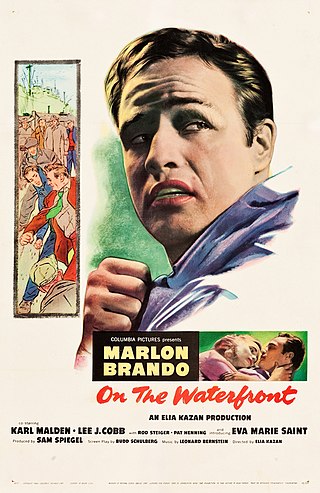
On the Waterfront is a 1954 American crime drama film, directed by Elia Kazan and written by Budd Schulberg. It stars Marlon Brando, and features Karl Malden, Lee J. Cobb, Rod Steiger, Pat Henning and Eva Marie Saint in her film debut. The musical score was composed by Leonard Bernstein. The black-and-white film was inspired by "Crime on the Waterfront" by Malcolm Johnson, a series of articles published in November–December 1948 in the New York Sun which won the 1949 Pulitzer Prize for Local Reporting, but the screenplay by Budd Schulberg is directly based on his own original story. The film focuses on union violence and corruption amongst longshoremen, while detailing widespread corruption, extortion, and racketeering on the waterfronts of Hoboken, New Jersey.

Sidney Poitier was a Bahamian and American actor, film director, and diplomat. In 1964, he was the first Black actor and first Bahamian to win the Academy Award for Best Actor. He received two competitive Golden Globe Awards, a BAFTA Award, and a Grammy Award as well as nominations for two Emmy Awards and a Tony Award. In 1999, he ranked among one of the "American Film Institute's 100 Stars". Poitier was one of the last surviving stars from the Golden Age of Hollywood cinema.

Joseph Leo Mankiewicz was an American film director, screenwriter, and producer. Mankiewicz had a long Hollywood career, and won both the Academy Award for Best Director and the Academy Award for Best Adapted Screenplay in consecutive years for A Letter to Three Wives (1949) and All About Eve (1950), the latter of which was nominated for 14 Academy Awards and won six.
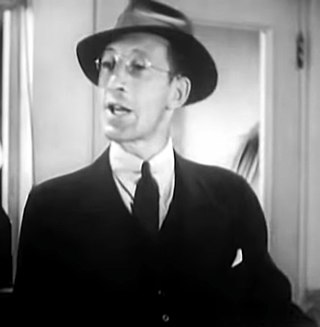
Charles Lane was an American character actor and centenarian whose career spanned 76 years.

Richard Weedt Widmark was an American film, stage, and television actor and producer.
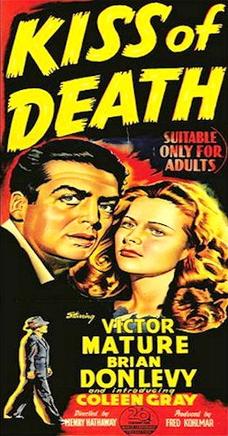
Kiss of Death is a 1947 American film noir directed by Henry Hathaway and written by Ben Hecht and Charles Lederer from a story by Eleazar Lipsky. The story revolves around an ex-con played by Victor Mature and his former partner-in-crime, Tommy Udo. The movie also starred Brian Donlevy and introduced Coleen Gray in her first billed role. The film has received critical praise since its release, with two Academy Award nominations.

George William Bailey is an American actor. Although he has appeared in many dramatic roles, he may be best remembered for his "crusty" comedic characters such as Staff Sergeant Luther Rizzo in M*A*S*H ; Lieutenant/Captain Thaddeus Harris in the Police Academy films (1984–1994), and Captain Felix Maxwell in Mannequin (1987). He played the role of Detective Lieutenant Louie Provenza on TNT's television crime drama The Closer, and its spinoff series Major Crimes, from 2005 to 2018.

People Will Talk is a 1951 American romantic comedy/drama film directed by Joseph L. Mankiewicz and produced by Darryl F. Zanuck from a screenplay by Mankiewicz, based on the German play by Curt Goetz, which was made into a movie in Germany. Released by Twentieth Century Fox, it stars Cary Grant and Jeanne Crain, with supporting performances by Hume Cronyn, Finlay Currie, Walter Slezak and Sidney Blackmer.
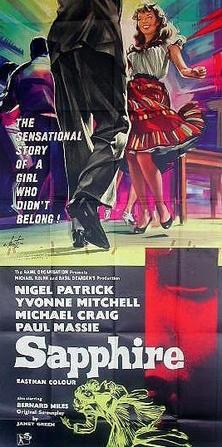
Sapphire is a 1959 British crime drama film directed by Basil Dearden, starring Nigel Patrick, Earl Cameron and Yvonne Mitchell. It focuses on racism in London toward immigrants from the West Indies, and explores the "underlying insecurities and fears of ordinary people" about those of another race. It was considered a progressive film for its time.

Carry On Doctor is a 1967 British comedy film, the 15th in the series of 31 Carry On films (1958–1992). It is the second in the series to have a medical theme. Frankie Howerd makes the first of his two appearances in the film series and stars alongside regulars Sid James, Kenneth Williams, Jim Dale, Charles Hawtrey, Joan Sims, Peter Butterworth, and Bernard Bresslaw. Hattie Jacques returns for the first time since Carry On Cabby four years earlier, while Barbara Windsor returns after her debut in Carry On Spying three years earlier. Carry On Doctor marks Anita Harris's second and final appearance in the series. The film was followed by Carry On Up the Khyber 1968.

Made in U.S.A is a 1966 French crime comedy film written and directed by Jean-Luc Godard, and starring Anna Karina, László Szabó, Jean-Pierre Léaud, Marianne Faithfull, Yves Afonso, and Jean-Claude Bouillon. It was a loose and unauthorized adaptation of the 1965 novel The Jugger by Richard Stark, and was also inspired by the 1946 Howard Hawks film The Big Sleep.

Peter Ray Burton was an English film and television actor.
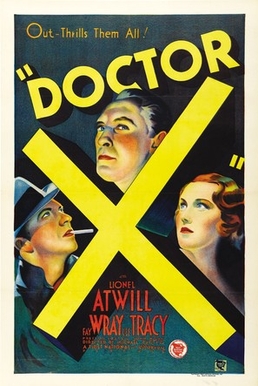
Doctor X is a 1932 American pre-Code mystery horror film produced jointly by First National and Warner Bros. Based on the 1931 play originally titled The Terror by Howard W. Comstock and Allen C. Miller, it was directed by Michael Curtiz and stars Lionel Atwill, Fay Wray and Lee Tracy.
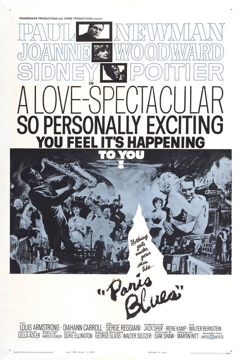
Paris Blues is a 1961 American musical romantic drama film directed by Martin Ritt, starring Sidney Poitier as expatriate jazz saxophonist Eddie Cook, and Paul Newman as trombone-playing Ram Bowen. The two men romance two vacationing American tourists, Connie Lampson and Lillian Corning. The film also deals with American racism of the time contrasted with Paris's open acceptance of black people. The film was based on the 1957 novel of the same name by Harold Flender.

Willis Ben Bouchey was an American character actor who appeared in almost 150 films and television shows. He was born in Vernon, Michigan, but raised by his mother and stepfather in Washington state.

Roy Paul Harvey was an American character actor who appeared in at least 177 films.

The Interns is a 1962 American drama film directed by David Swift and starring Michael Callan, Cliff Robertson, James MacArthur, Nick Adams, Haya Harareet and Suzy Parker. The film was followed by a 1964 sequel, The New Interns, and a 1970–1971 television medical drama series, The Interns, that was based on the films. The Interns was directed by David Swift.
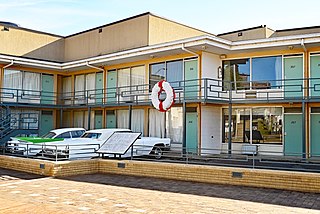
Martin Luther King Jr., an African-American clergyman and civil rights movement leader, was fatally shot at the Lorraine Motel in Memphis, Tennessee, on April 4, 1968, at 6:01 p.m. CST. He was rushed to St. Joseph's Hospital, where he died at 7:05 p.m. He was a prominent leader of the civil rights movement and a Nobel Peace Prize laureate who was known for his use of nonviolence and civil disobedience.

Mildred Joanne Smith was an American actress, singer, magazine editor and teacher. In her brief acting career, she performed in a number of Broadway shows and in only one film, No Way Out, alongside Sidney Poitier.

Jesslyn Fax was a Canadian-American actress. She is known for playing 'Miss Hearing Aid' in Rear Window (1954), Avis Grubb in The Music Man (1962), Miss Hemphill in The Man Who Died Twice (1958), and Airline passenger in The Family Jewels (1965).




















